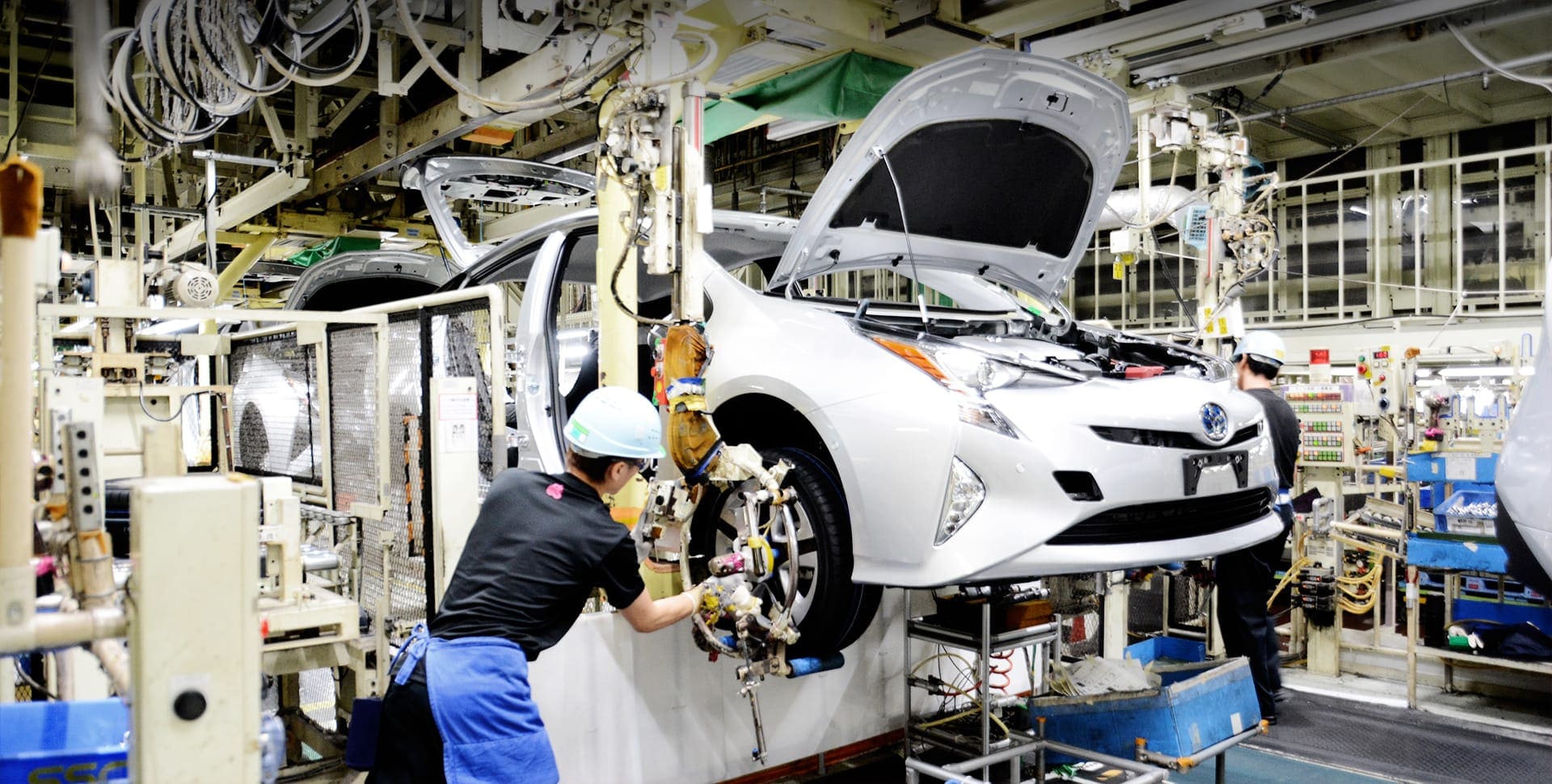After World War II, the Japanese market is destroyed and need to rebuild. Adapted to the reality of the country, which had a geographic space much smaller than that of the United States, Toyotism appears, first adopted by the Toyota plant.
The innovative capacity of Eiji Toyoda – chairman of the company and the main responsible for making it one of the main industries in the world – allowed his country to embrace an industrial approach totally different from that applied until that moment.
After visiting American factories and finding gigantic spaces to store products and lean manufactures, he decided to do it differently and used mainly the concepts of Just-in-Time and flexible accumulation to create a new model for operationalizing production.
The model, which goes against the ideals of Fordism and Taylorism, became popular around the world in the 1970s, a time when capitalism, the market economy and the promotion of international trade gained strength, demanding a new leap in productivity. And corporate profitability.
Understand more about the main differentials of this model!
Main characteristics of Toyotism
1) Production flexibility and Just-in-Time
Instead of stocking products, Toyotism preaches production on demand and eliminating wasted resources. Thus, all raw material is used and there is no surplus in production.
This not only facilitates the circulation of inputs, people and processes on the shop floor, facilitating the management of processes and a clearer focus on their operational understanding to facilitate the identification of opportunities for improvement and waste (lean).
In addition, the concept states that products should not follow a single pattern, as they can be customized (colors, styles, etc.). This was one of the great insights of the time, because think about it: do you prefer a car made the way the automaker wants or would you like to choose the details? If we can already do that today with the cars we buy today, much is due to Toyotism.
This possibility boosted sales and reflected in profits at the end of the month.
2) Skilled and multifunctional labor
In the Fordist production line, the worker has a single determined function. In Toyotism, on the other hand, he must be able to perform the most diverse tasks and know the way the product is made well.
It is worth mentioning that the model provides and recommends specialization of functions, but in a much less radical way like Fordism. Who doesn’t remember the classic scene from the movie Modern Times, by Charles Chaplin, in which he only tightened nuts? It was this level of specialization preached by Fordism.
Toyotism still preaches specialization as we still live in companies today.
3) Focus on quality management and market differentiation
Toyotism preaches that, from beginning to end, all stages go through a rigorous quality control system, which allows bottlenecks in the process not to appear and results in an important differential.
You may have come across William Deming’s famous phrase “What is not measured is not managed”. This is a crucial implicit concept of Toyotism in terms of process control, and present and fundamental in operations even today in methods not even directly related to the shop floor, such as the BSC (Balanced Scorecard)
In addition, the focus on the production of products that will be sold allows the appearance of defects to be reduce, where the concept of extreme specialization of Fordism is improved, but with a clear bias of profitability and sales, and not simply with the reduction of costs.
4) Use of cash management methods
To control and monitor all stages, Toyotism provides transparency, visibility and organization. This is essential for the method to work and, in that sense, own methodologies like Kanban emerge.
In summary, Kanban is a simple but extremely efficient way of controlling the execution of work routines.
The model popularized several other concepts over time such as Lean, 6 Sigma, WCM, etc.
In all of these, something fundamental is necessary: Understand and control your processes end to end!
5) Analysis of market demands
In search of improvement, it is important that the company is update and invests in market research to adapt the product to the main requirements of the customer.
Understanding what consumer demands are essential to implement a Lean Manufacturing process and reduce waste with unnecessary expenses, another basic concept of Toyotism.
How can Novidá help you?
Eiji Toyoda and his vision certainly enabled companies to have a clear vision that the resources involved in production could have better used, from the raw material to the company’s employees.
To help you manage them, Novidá has developed a solution focused on understanding and improving operational processes focused on people and their operational activities, alone in the operation or in command of internal equipment and vehicles.
Through a set of proprietary technologies that involve indoor and outdoor geolocation systems (RTLS), Internet of Things and Artificial Intelligence, we provide our customers with a holistic understanding of these processes.
We allow the measurement of reliable data and the complete control – in real time – of several critical indicators on its operation such as times and movements, safety and labor risks and the various waste analyzes of Lean 6 Sigma methodologies!
In a system that is easy to implement, we have already generated consistent impacts on our clients’ operations, in the order of millions of dollars per year, with an average ROI of 14x the amount invested!
Do you want to know more about our work? Click here and check it out!





